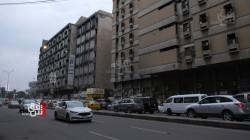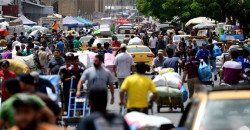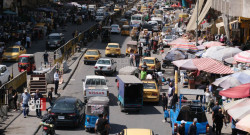Iraq's hidden workforce: The rise of waste picking

Shafaq News – Baghdad
The informal profession of waste picking has become a critical lifeline for tens of thousands of young people and women across Iraq, according to Manar Al-Obaidi, head of the Iraq Future Foundation.
In a statement, Al-Obaidi described the growing reliance on waste picking as both a social and economic phenomenon that is unfolding largely unnoticed by the state.
“Today, waste picking has become a last resort for tens of thousands of youth and women who lack access to formal employment and possess neither academic qualifications nor vocational skills,” Al-Obaidi wrote.
“It is no longer a random activity. It is a structured, expanding phenomenon operating quietly through Iraq’s cities and alleys, overlooked by both government and society.”
Despite its marginalization, Al-Obaidi emphasized the vital role waste pickers play in the national economy, particularly in the recycling sector, pointing out to rising imports by countries such as Turkiye, Iran, China, the UAE, and Saudi Arabia of recyclable materials originating in Iraq — including paper, aluminum, iron, and wood waste.
Each category of recyclable material, he explained, creates a supply chain capable of generating at least 20,000 direct and indirect jobs, making waste picking one of the largest informal job generators in the country amid a lack of viable alternatives.
This trend is intensifying at a time of deepening economic pressure. According to forecasts by Statista, Iraq’s unemployment rate reached 18.22% in 2025, with a labor force of approximately 12.42 million people and a total population projected at 47.02 million. The combination of limited formal employment opportunities, rapid population growth, and weak vocational training systems has left many Iraqis with few options beyond informal work.
Al-Obaidi noted that waste picking has thus become the only option for many, leading to increased competition in the sector. However, he warned that the industry operates entirely outside state oversight, and in some areas is controlled by organized networks that divide territories based on the type of recyclable material and impose fees or extortions on workers. “This reflects the presence of a parallel informal economy that lacks both regulation and fairness,” he said.
With domestic consumption rising and waste generation increasing, Al-Obaidi projected that Iraq’s industrial and manufacturing sectors will increasingly depend on raw materials sourced from this growing activity. Yet despite this growing reliance, he criticized the absence of a clear government strategy to track where these materials go, how much they are worth, and who profits from their export. “Why,” he asked, “are they not reprocessed domestically to generate local added value?”
Al-Obaidi also stressed that the goal is not to burden waste pickers with bureaucratic regulation, but to compel the state to recognize that this profession has become, for thousands of Iraqis, the only remaining way to earn a living. “These are forgotten citizens, deprived of education and training, who found no path forward but to collect recyclables and sell them to meet their most basic needs.”



